Katerina Gkirtzou
Towards an Interoperable Ecosystem of AI and LT Platforms: A Roadmap for the Implementation of Different Levels of Interoperability
Apr 17, 2020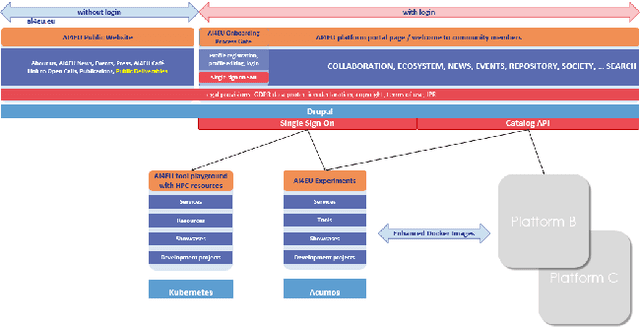

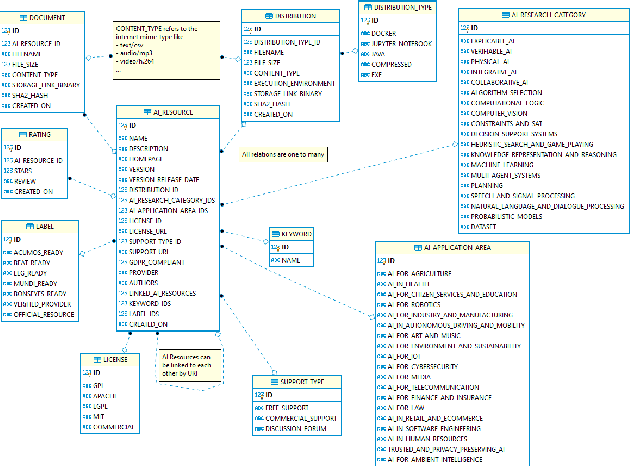

Abstract:With regard to the wider area of AI/LT platform interoperability, we concentrate on two core aspects: (1) cross-platform search and discovery of resources and services; (2) composition of cross-platform service workflows. We devise five different levels (of increasing complexity) of platform interoperability that we suggest to implement in a wider federation of AI/LT platforms. We illustrate the approach using the five emerging AI/LT platforms AI4EU, ELG, Lynx, QURATOR and SPEAKER.
European Language Grid: An Overview
Mar 30, 2020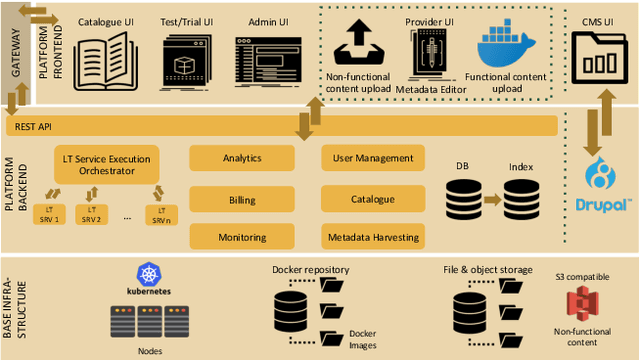
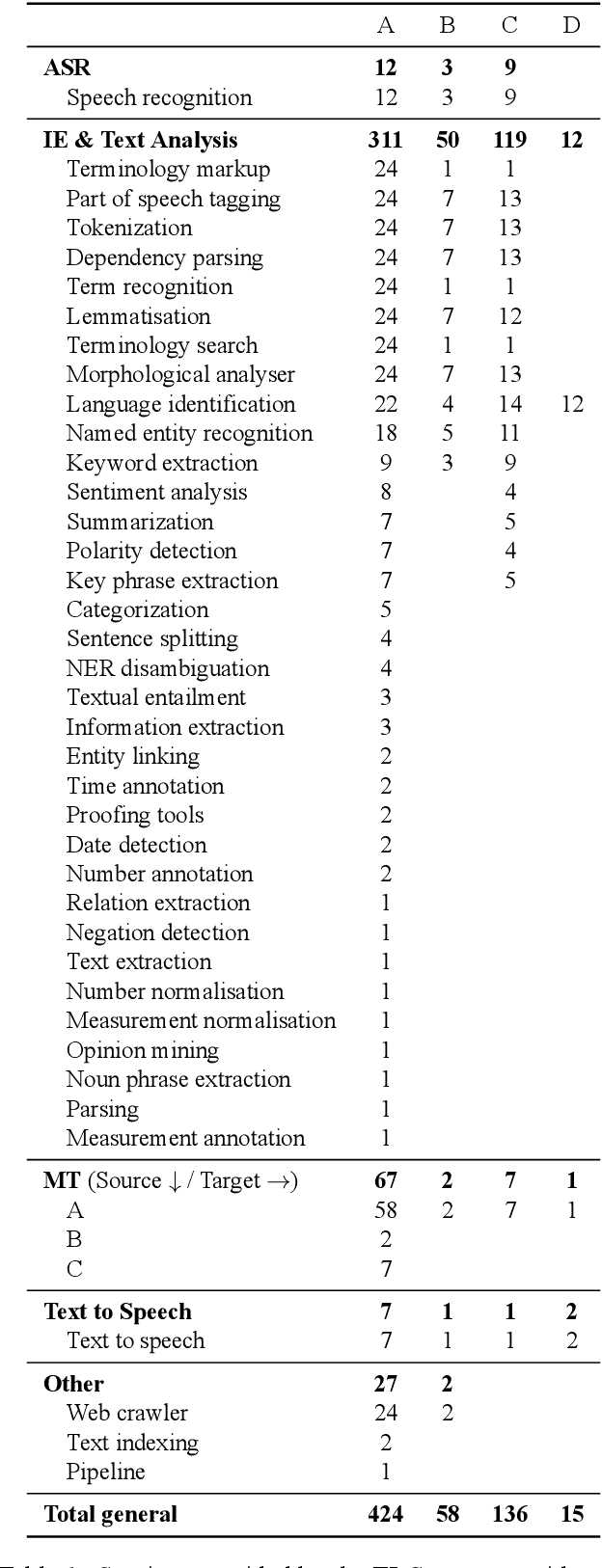
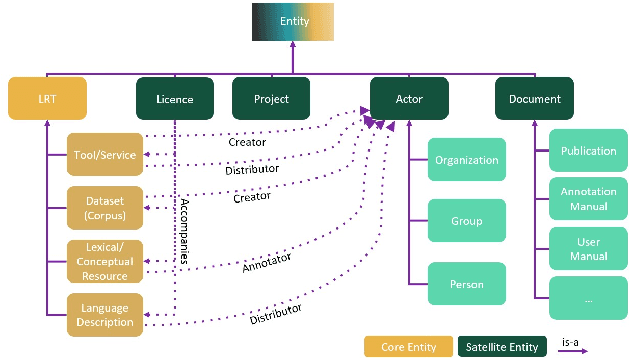
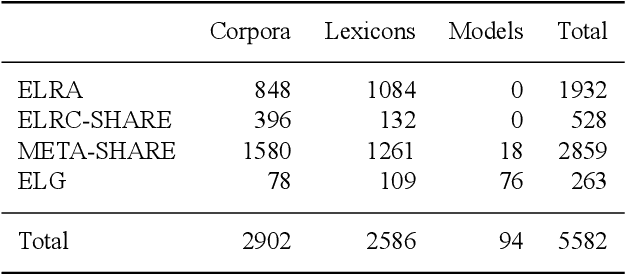
Abstract:With 24 official EU and many additional languages, multilingualism in Europe and an inclusive Digital Single Market can only be enabled through Language Technologies (LTs). European LT business is dominated by hundreds of SMEs and a few large players. Many are world-class, with technologies that outperform the global players. However, European LT business is also fragmented, by nation states, languages, verticals and sectors, significantly holding back its impact. The European Language Grid (ELG) project addresses this fragmentation by establishing the ELG as the primary platform for LT in Europe. The ELG is a scalable cloud platform, providing, in an easy-to-integrate way, access to hundreds of commercial and non-commercial LTs for all European languages, including running tools and services as well as data sets and resources. Once fully operational, it will enable the commercial and non-commercial European LT community to deposit and upload their technologies and data sets into the ELG, to deploy them through the grid, and to connect with other resources. The ELG will boost the Multilingual Digital Single Market towards a thriving European LT community, creating new jobs and opportunities. Furthermore, the ELG project organises two open calls for up to 20 pilot projects. It also sets up 32 National Competence Centres (NCCs) and the European LT Council (LTC) for outreach and coordination purposes.
Making Metadata Fit for Next Generation Language Technology Platforms: The Metadata Schema of the European Language Grid
Mar 30, 2020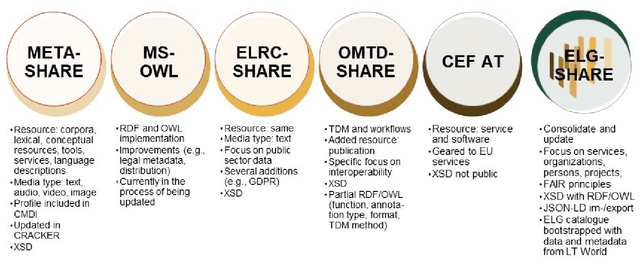
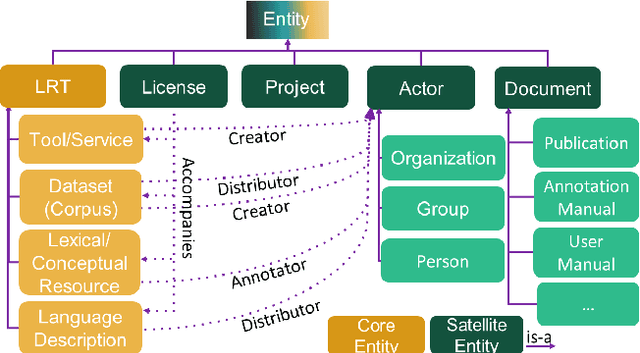
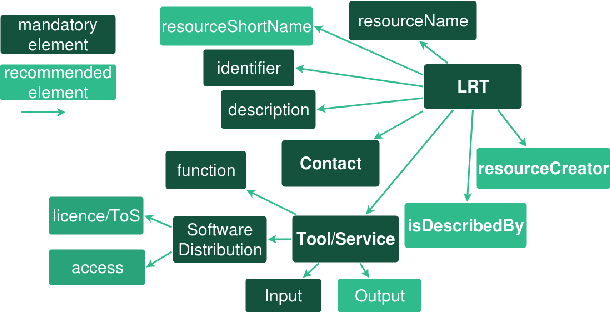
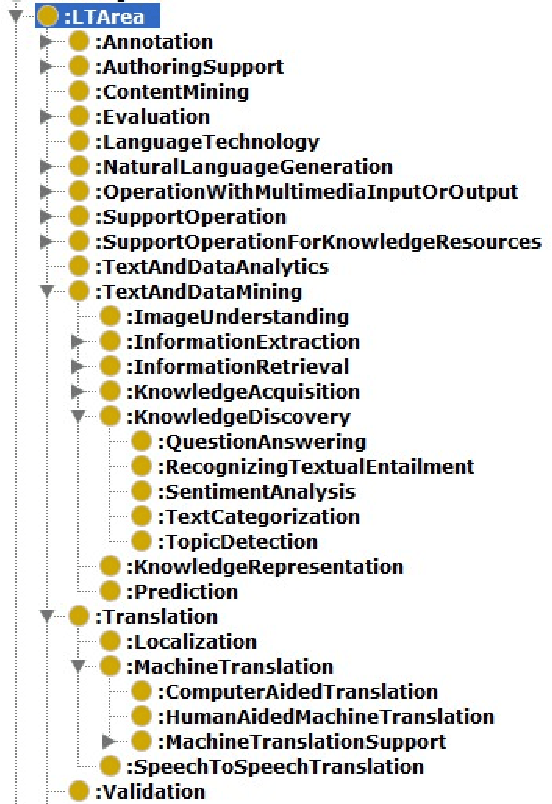
Abstract:The current scientific and technological landscape is characterised by the increasing availability of data resources and processing tools and services. In this setting, metadata have emerged as a key factor facilitating management, sharing and usage of such digital assets. In this paper we present ELG-SHARE, a rich metadata schema catering for the description of Language Resources and Technologies (processing and generation services and tools, models, corpora, term lists, etc.), as well as related entities (e.g., organizations, projects, supporting documents, etc.). The schema powers the European Language Grid platform that aims to be the primary hub and marketplace for industry-relevant Language Technology in Europe. ELG-SHARE has been based on various metadata schemas, vocabularies, and ontologies, as well as related recommendations and guidelines.
 Add to Chrome
Add to Chrome Add to Firefox
Add to Firefox Add to Edge
Add to Edge